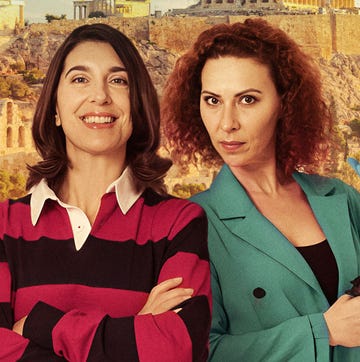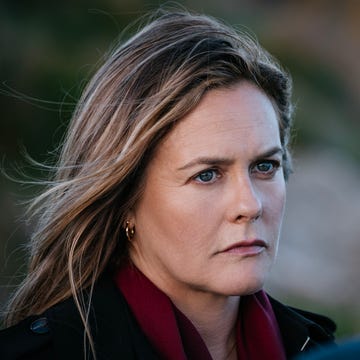Recently, a friend told me a child they knew had been invited to a birthday party at Disneyland Paris. For a whole weekend. And attendees were in line for a luxury goodie bag. I paused for a moment before replying, ‘Hmm. In my day, we just stuck our faces in a plate of flour to retrieve a boiled sweet.’ But rather than feeling hard done by, I felt grateful to have grown up in simpler times. Instantly, a warm wave of nostalgia washed over me.
At 63, in a world that seems to get crazier by the day, I enjoy the odd meander down memory lane. Random things pop into my head. The smell of the hardware shop my dad used to visit: top notes of varnish, middle notes of polish, resting on a base of scuffed wooden floor, with the door’s tinkling bell optimistically announcing that most things in life were fixable. Or I’ll picture my childhood home when we hit the height of luxury by ordering a radiogram (the word itself a now-nostalgic portmanteau of ‘radio’ and ‘gramophone’).
It was the length of an ocean liner and was (somewhat unfathomably) docked in our orange fitted kitchen. And oh, the music. Fleetwood Mac. Tears For Fears. Pet Shop Boys. And all those big TV themes: Hawaii Five-O, Howards’ Way and Van Der Valk (whose theme was the chart hit Eye Level by the Simon Park Orchestra). Tunes that send me down a time tunnel, tipping me straight back into my teenage bedroom, which, incidentally, featured fake traffic lights – an interior design touch inspired by an episode of Starsky & Hutch.
It seems I’m not alone in feeling the pull of the past, because nostalgia is very now. Take the numerous social media accounts devoted entirely to the 1970s, 1980s and 1990s; the success of the stage version of Fawlty Towers; and the frenzy surrounding the Oasis reunion. Even Bergerac is about to get a reboot.
The word ‘nostalgia’ was coined in 1688 by Swiss physician Johannes Hofer to describe troops who were dreadfully homesick. The word derived from the Greek ‘nostos’ (homecoming, or return) and ‘algos’ (pain), describing what was considered a dangerous, even life-threatening disorder. Only in the latter part of the 20th century did it shed the perception that it was a wholly depressive, regressive emotion.
While nostalgia isn’t all rainbows and unicorns – overindulgence can intensify feelings of dissatisfaction or loss, and clearly getting stuck in the past isn’t healthy – psychologists now recognise it has numerous upsides. When the scientific journal Current Opinion In Psychology dedicated a whole issue to nostalgia in 2023, contributors reported that potential benefits included encouraging a sense of connectedness with others, imbuing life with more meaning, and enhancing optimism, inspiration and wellbeing.
Researchers also divide nostalgia into different categories. The most obvious is ‘personal nostalgia’. This is what I’m experiencing when I recall prancing around the living room as a kid to the theme from The White Horses, or how I felt after my first kiss, first day at work or first music festival.
Krystine Batcho, professor of psychology at Le Moyne College in Syracuse, New York, and a pioneering expert in the field, explains that this kind of nostalgia often peaks during times of transition and change. So, as you might expect, it can occur in people as they approach old age and enjoy reminiscing.
Surprisingly, Dr Batcho reveals there’s an even bigger spike during the transition from childhood to young adulthood. ‘In this case, it’s a very comforting emotion, evoking memories of being accepted and loved unconditionally,’ she explains.
‘It can also help to unite us to our authentic selves, reminding us who we have been and giving us a sense of who we want to be down the road.’ Another kind of nostalgia is ‘anticipatory nostalgia’ – it’s that bittersweet pang you experience when you realise that the present moment is so precious, you’ll miss it when it’s gone – for example, when a parent acknowledges that their cuddly, wobbly toddler won’t be a cuddly, wobbly toddler for long.
But that doesn’t makeit a negative emotion at all – in fact, it’s future-orientated and embraces excitement, curiosity and gratitude.
The last category is ‘historical nostalgia’. No, not a new TV channel for period drama, but a feeling of nostalgia for a time you are either not old enough to remember or that precedes your birth entirely – that wistful ‘I wish I’d been born when The Beatles were around’ idea.
This sentiment sometimes shows up in the comments posted under YouTube’s vintage music videos. When I was searching California Dreamin’ (a haunting fave of mine), I not only discovered it features in the hit Netflix K-drama Mr Plankton, I also spotted some fascinating feedback on the song: ‘This triggers a weird kind of nostalgia in me… nostalgia for a life I haven’t lived,’ said one commenter.
Is this what’s been happening over the past few years with so many teens and twenty somethings having a major love-in with Friends? I admit, when I first noticed the trend, I thought, ‘Hands off our nostalgia – surely you want to make your own?’ But I’m starting to think something more meaningful was going on.
According to Dr Batcho, historical nostalgia can surface for various reasons; it may be driven by dissatisfaction and disconnection with the present, whether that be related to the prevailing culture or political landscape. But, more positively, it can also arise when people paint the past with a romantic, rosy glow, looking for some of that lustre to rub off on the here and now.
The past never seemed rosier to me than during the pandemic. As we were all legally required to be reclusive, I reclined into a slew of TV classics (for me and my husband, that included switching on The Sweeney every day at 5pm). Somehow, it was reassuring to see that copper Ford Consul, those corduroy suits and John Thaw’s ice-chip eyes.
Most of my friends were catching some vintage TV, too – The Good Life, Yes Minister, Columbo – and research shows collective experiences of nostalgia can often be triggered by troubled, turbulent times. In this context, it’s thought nostalgia might have a threat- buffering, stabilising effect that can also help us process the current situation.
According to TikTok posts by California-based therapist Nikki Roy, purposely invoking nostalgic feelings can also be beneficial. She suggests a great way to do this is to make a playlist of the music you loved in your teens and early 20s. If you give those tracks a blast when you’re feeling down, it can help get you out of your head and make you feel alive, she attests.
The reason? Research suggests our brains bind us to that music more tightly than music we hear in later life. With emotions running high, youthful neural activity lays down those musical memories so firmly, they can exert a disproportionate power over you, which doesn’t disappear with age, in a phenomenon called ‘neural nostalgia’.
As for nostalgia’s less personal, more social value, I give Dr Batcho the last word. ‘One of the healthiest forms of nostalgia throughout human history has always been to connect each generation to the next, passing down the best of the past,’ she says. ‘Just because we’re orientated toward progress doesn’t mean there isn’t something of value that we might have forgotten.’
So, if you don’t mind, I’m off to crank up the radiogram, listen to Kate Bush’s Never For Ever, whip up some butterscotch Angel Delight (heaven) and then watch a repeat of The Likely Lads.
Whatever happened to them?



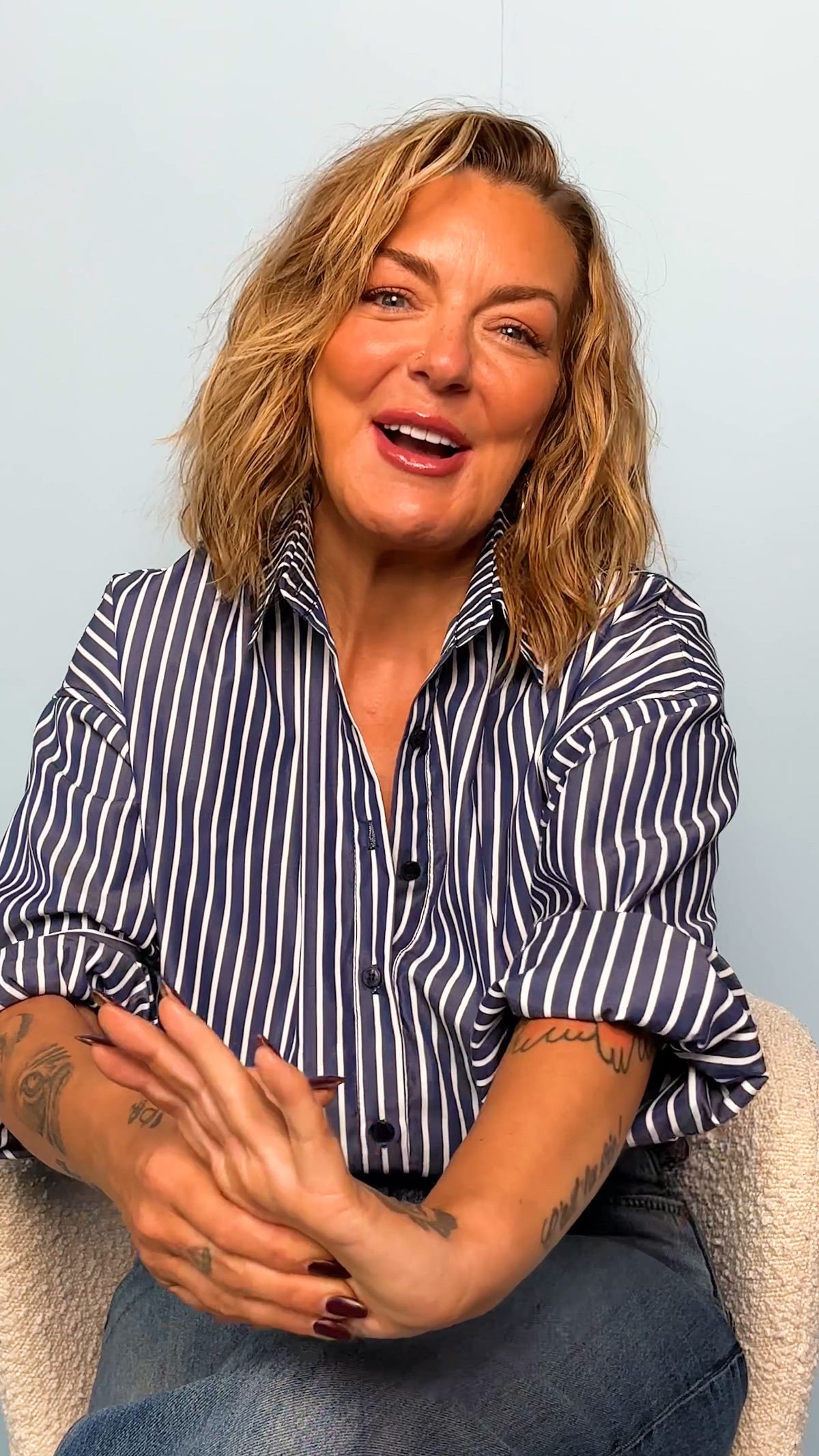

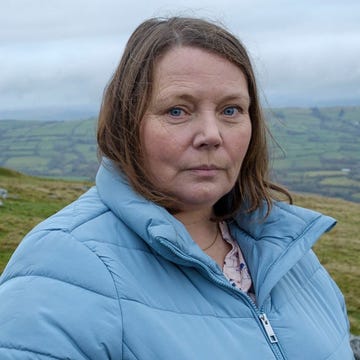

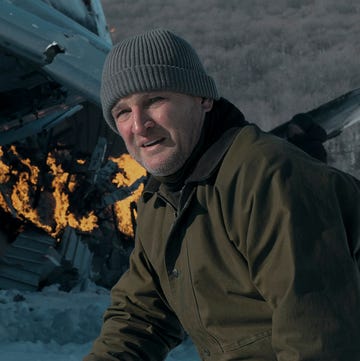

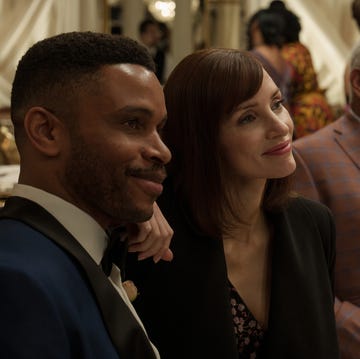
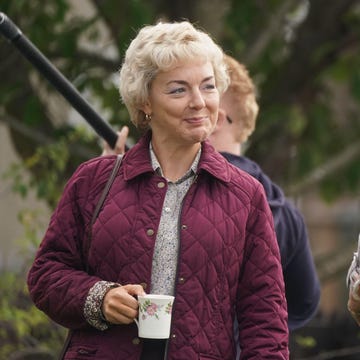

![©ITV from monumental television frauds sr1pictured: jodie whittaker as sam suranne jones as bert this photograph is (c) itv plc/ monumental television and can only be reproduced for editorial purposes directly in connection with the programme or event mentioned above, or itv plc. this photograph must not be manipulated [excluding basic cropping] in a manner which alters the visual appearance of the person photographed deemed detrimental or inappropriate by itv plc picture desk. this photograph must not be syndicated to any other company, publication or website, or permanently archived, without the express written permission of itv picture desk. full terms and conditions are available on the website www.itv.com/presscentre/itvpictures/termsfor further information please contact:michael.taiwo1@itv.com](https://hips.hearstapps.com/hmg-prod/images/frauds-sr1-first-look-03-6891d81c2d536.jpg?crop=0.428xw:0.643xh;0.0641xw,0.116xh&resize=360:*)

